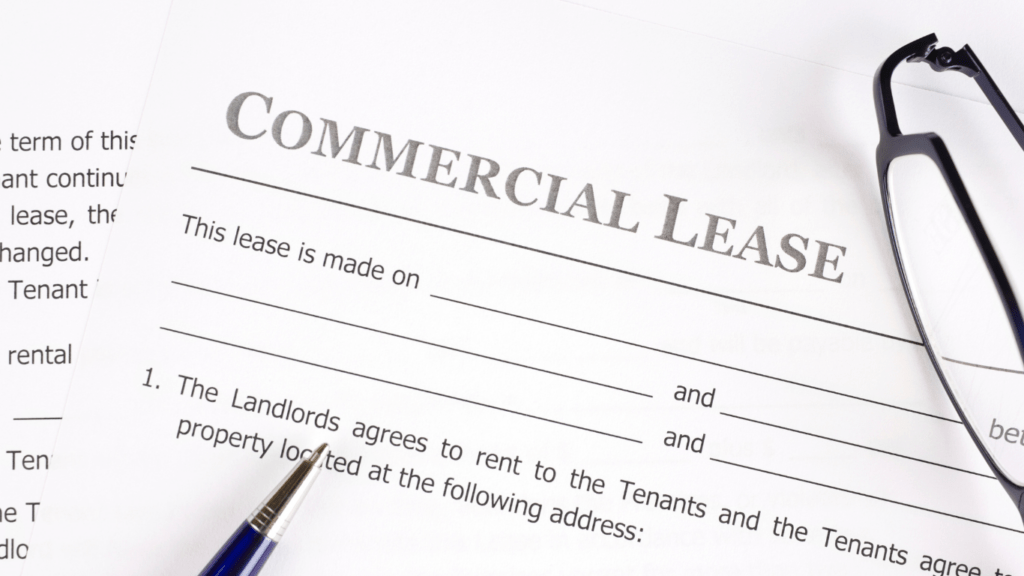Understanding a Commercial Lease
A commercial lease is a legally binding agreement defining the relationship between a landlord and a business tenant. Knowing its details avoids costly misunderstandings and ensures the lease aligns with business needs.
Key Components of a Commercial Lease
- Rent Structure: Commercial leases often include base rent and additional costs like maintenance fees or property taxes. For example, a gross lease might cover all expenses, while a triple net lease splits costs between tenant and landlord.
- Lease Term: The start and end dates, along with the renewal options, define the lease period. Short-term leases are flexible but long-term leases secure a fixed location.
- Permitted Use: Defines how the property can be used. For example, a retail lease might restrict residential or industrial purposes.
- Maintenance and Repairs: Specifies responsibility for property upkeep. Landlords may handle structural repairs, while tenants manage interior maintenance.
- Exit Clauses: Includes conditions allowing lease termination, such as penalties or buyout options for early exits.
- Gross Lease: The landlord covers property expenses like maintenance, taxes, and insurance. Tenants only pay a fixed rental amount.
- Net Lease: Tenants cover a portion of additional expenses, which may include taxes (single net), taxes and insurance (double net), or taxes, insurance, and maintenance (triple net).
- Percentage Lease: Rent combines a base amount with a percentage of the tenant’s gross sales, common in retail leases.
- Modified Gross Lease: Combines elements of gross and net leases, splitting expenses between landlord and tenant.
Understanding these types makes informed discussions possible when negotiating a lease.
Preparing for Negotiation
Thorough preparation ensures informed decision-making before entering lease discussions. It minimizes risks and strengthens bargaining positions.
Conducting Market Research
I analyze local market conditions to understand rental trends and property demand. Researching similar properties’ lease rates, landlord incentives, and vacancy rates provides a benchmark for negotiations. For example, if comparable properties offer tenant improvement allowances, I use this data to request similar concessions.
I also evaluate the commercial area’s economic outlook by reviewing market reports, demographic data, and nearby business performance. Staying informed helps me identify advantageous opportunities or potential pitfalls.
Identifying Your Needs and Priorities
I define my business requirements to align the lease with operational goals. Key factors include the required square footage, ideal location, and parking availability. For instance, if I anticipate client visits, I prioritize locations with accessible parking and visibility.
I rank my priorities to separate must-haves from negotiable factors. This clarity streamlines the process and allows me to focus negotiation efforts on terms aligned with my essential needs.
Essential Tips for Negotiating a Commercial Lease

Negotiating a commercial lease requires strategy and attention to detail. By focusing on critical elements, businesses can secure favorable terms that support their long-term success.
Negotiate Rent and Terms
I evaluate the base rent and understand any additional costs like maintenance fees or property taxes. Comparing market rates for similar properties strengthens my case for adjusting rental prices. I also clarify rent escalation clauses, ensuring predictable increases over the lease term.
Request Customizable Lease Clauses
I advocate for flexibility in lease clauses to accommodate my business needs. For example, I negotiate exclusivity rights to prevent competitors from leasing nearby spaces or subleasing permissions in case of downsizing. This customization reduces potential conflicts and ensures adaptability.
Consider the Length of the Lease Agreement
I balance the lease term against my business’s stability and growth projections. A longer lease may mean lower monthly rent, but I prefer shorter terms with renewal options if business uncertainty exists. This approach allows adjustments as circumstances evolve.
Review Termination and Renewal Clauses
I review termination conditions to avoid penalties if I need to exit early. Renewal clauses also get my attention; I negotiate for favorable renewal terms with predictable rent adjustments, preventing surprise costs when extending the lease.
Focus on Maintenance and Repair Responsibilities
I clearly define who handles maintenance and repair tasks to avoid unexpected expenses. For instance, I negotiate against covering major structural repairs if I’m only leasing part of the property. This clarity helps me manage my operational budget better.
Working With Professionals
Engaging the right experts simplifies commercial lease negotiations and reduces risks. From legal advice to market insights, professionals provide valuable support throughout the process.
Hiring a Commercial Real Estate Lawyer
A commercial real estate lawyer examines lease agreements to identify risks and inconsistencies. They ensure compliance with local laws, assess unfavorable terms like automatic rent escalations, and recommend revisions. If disputes arise, they handle negotiations or legal actions to protect my business interests. For example, these lawyers can negotiate to limit liability under indemnity clauses or clarify ambiguous terms in rent adjustments.
Consulting a Broker or Leasing Agent
A broker or leasing agent offers critical insights into market trends and comparable lease rates. They leverage their network to find properties that match my business needs, saving time and effort. When negotiating terms, they use market data to strengthen my position, such as advocating for tenant incentives like rent-free periods or property improvements. Their expertise adds value, especially in high-demand locations.

 William Taylor has been instrumental in building Mode Key Homes, focusing on commercial real estate and rental management strategies. His contributions help landlords and business owners navigate the complexities of the real estate market while maximizing efficiency and profitability.
William Taylor has been instrumental in building Mode Key Homes, focusing on commercial real estate and rental management strategies. His contributions help landlords and business owners navigate the complexities of the real estate market while maximizing efficiency and profitability.